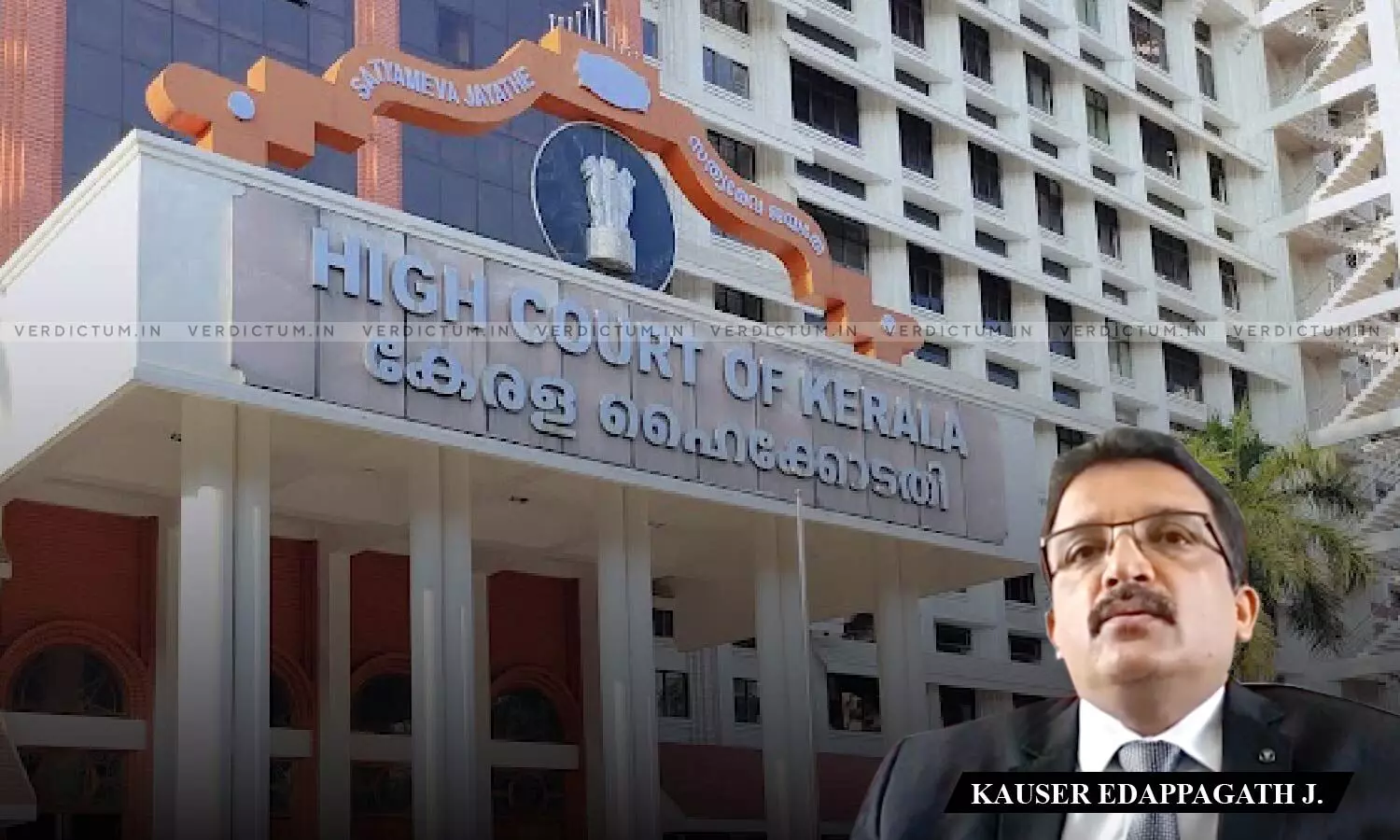
Justice Kauser Edappagath, Kerala High Court
Trial Court Must View Video Cassette Allegedly Containing Obscene Scenes When It Is Produced In A Case U/S. 292 IPC: Kerala High Court
 |
|The revision petition before the Kerala High Court was filed by the sole accused who faced trial for the offence punishable under Section 292(2)(a), (c) and (d) of the IPC.
While setting aside the conviction of a man booked for possessing obscene video cassettes at his video shop, the Kerala High Court has held that when a video cassette which allegedly contains obscene scenes is produced in a prosecution under Section 292 of IPC, the Court must view and examine the said cassette to convince itself that it contains obscene scenes.
The revision petition before the High Court was filed by the sole accused who faced trial for the offence punishable under Section 292(2)(a), (c) and (d) of the IPC.
The Single Bench of Justice Kauser Edappagath held, “The very purpose of producing the primary evidence is to facilitate the court to see, examine and analyse it directly. When a video cassette which allegedly contains obscene scenes is produced in a prosecution under Section 292 of IPC, the Court must view and examine the said cassette to convince itself that it contains obscene scenes which is lascivious or appeals to the prurient, lewd, lecherous, lustful or satyric instincts of the viewer. In other words, unless the Court/Judge personally views the video cassette and convince itself the obscenity in the content, it cannot be said that there is substantive evidence before the Court to render a finding that offence under Section 292 is attracted.”
Advocate M.P.Madhavankutty represented the Petitioner, while Public Prosecutor Sangeetha Raj. N.R. represented the Respondent.
Factual Background
The incident dates back to the year 1997 when the accused was found in possession for sale/hire, ten obscene video cassettes at his video shop. The trial court found that the petitioner had committed the offence punishable under Section 292 (2) (a), (c) and (d), and he was sentenced to undergo simple imprisonment for two years and pay a fine of Rs 2,000. The petitioner challenged the conviction and sentence of the trial court before the Sessions Court. The appellate court confirmed the conviction but reduced the sentence to simple imprisonment for one year and a fine of Rs 1,000. The revision petition was filed challenging the judgments of the trial court as well as the appellate court.
Reasoning
The Bench explained that to attract sub-section (2) of Section 292 of the IPC, the prosecution has to prove that a person sells, lets to hire, distributes, publicly exhibits or in any manner puts into circulation or has in his possession for the purpose of sale, hire, distribution, public exhibition or circulation any obscene representation or object. It was further noticed that the word ‘obscene’ is not defined under the IPC, IT Act or POCSO Act.
The Bench stated, “Thus, to attract the offence under Section 292 of the IPC, the following ingredients must be proved namely: (i) the book, pamphlet, paper, writing, drawing, painting, representation, figure or any other object is lascivious, (ii) it appeals to the prurient interest, (iii) it tends to deprive and corrupt persons who are likely to read/see/hear the matter (iv) the matter does not fall within the exceptions provided in the section and (v) the obscenity is judged from the point of view of an average person, by applying contemporary community standards.”
As per the Bench, the direct examination of the contents of the video cassettes by the Court was necessary to prove that the video cassettes contained obscene materials. “Unless and until the Court views the video cassette produced by the prosecution for its inspection as contemplated under Section 61 of the Indian Evidence Act, it cannot be said that there is substantive evidence to prove that the contents in the video cassette are obscene in nature”, it said.
The Bench further noted, “The powers vested with this Court under Section 397 r/w 401 of Cr.P.C. are inherent in nature to correct the judgments of the trial court or the appellate court which suffers from gross illegality. The findings in the impugned judgments of the trial court as well as the appellate court have been arrived at by ignoring the principles that govern reappreciation of evidence. The entire approach of the trial court as well as the appellate court in dealing with the evidence and law on the point was wrong.”
Thus, finding the present matter to be a fit case where the discretionary power vested with this Court under Section 397 r/w 401 of Cr.P.C. could be exercised, the Bench allowed the criminal revision petition and set aside the conviction and sentence imposed upon the Petitioner.
Cause Title: Harikumar v. The State of Kerala (Neutral Citation: 2025:KER:60201)
Appearance
Petitioner: Advocate M.P. Madhavankutty
Respondent: Public Prosecutor Sangeetha Raj. N.R.